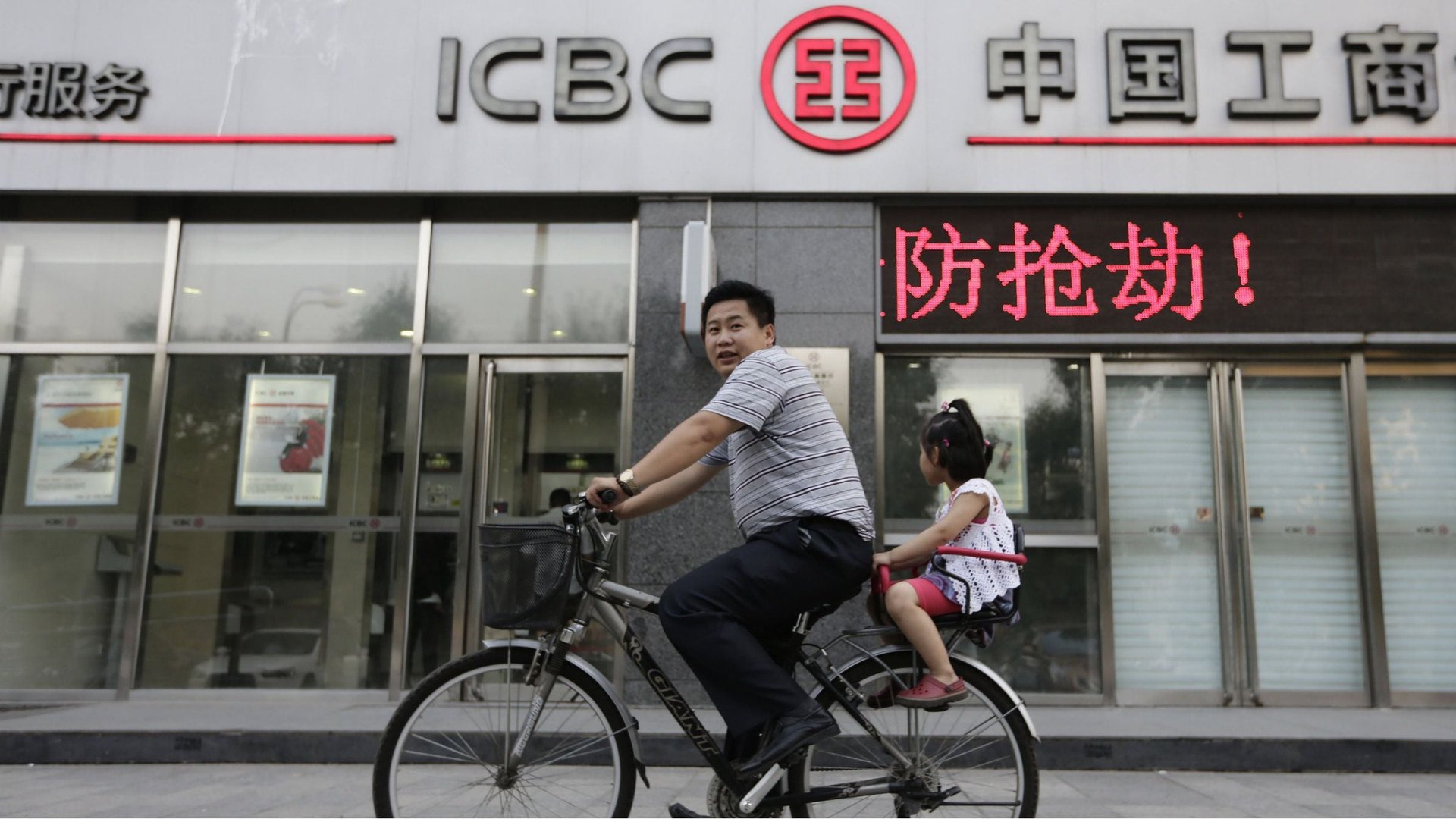The giant Industrial & Commercial Bank of China is deemed “too big to fail”—but not just because of its size
China’s biggest bank, Industrial & Commercial Bank of China (ICBC), is indisputably enormous. With $2.95 trillion in assets and a $226.8 billion market capitalization, it is far and away the world’s largest financial institution, and its most profitable. As of this week, it has also taken its place on another, dubiously honorable list: For the first time ICBC has been deemed “too big to fail” by international financial regulators trying to fend off the next global financial crisis.


China’s biggest bank, Industrial & Commercial Bank of China (ICBC), is indisputably enormous. With $2.95 trillion in assets and a $226.8 billion market capitalization, it is far and away the world’s largest financial institution, and its most profitable. As of this week, it has also taken its place on another, dubiously honorable list: For the first time ICBC has been deemed “too big to fail” by international financial regulators trying to fend off the next global financial crisis.
Yet the bank’s arrival on the list, which will require the ICBC to hold a higher ratio of equity to risk-adjusted assets, is not just a function of its mammoth size. Nor is it solely a question of its business prospects—even though ICBC’s non-performing loans are on the rise, and its time-honored business model is under threat from the planned lifting of Chinese interest rate controls.
What really seems to have caught the notice of the Basel-based Financial Stability Board, at least according to ICBC, is the bank’s increased presence abroad and its growing interconnectedness within the vast global financial system, says the Financial Times. The TBTF list is designed to address regulators’ greatest fear: that a shock in one corner of the world could set off a global chain reaction as over-extended banks are forced sell off assets.
The idea is that raising capital requirements would create a buffer to mute such a reaction. “Global systemic importance should be measured in terms of the impact that a bank’s failure can have on the global financial system and wider economy, rather than the risk that a failure could occur,” the FSB explained in its latest update.
ICBC’s new TBTF designation won’t have any immediate effect—the Chinese government already requires it to have a core tier 1 capital ratio of 8.5% by 2018, well above the 8.0% dictated by its position on the TBTF list, and the bank reported a ratio of 10.48% as of June 30.
But the close attention of global regulators could conceivably affect the bank’s stated desire to establish itself beyond China’s borders—for every degree of complexity and interconnectedness the bank accomplishes abroad, it will increase the need for additional capital reserves in the eyes of global regulators. Along with other state-owned lenders like China Construction Bank, ICBC has opened new business in the Middle East, Europe, and Latin America in an attempt to seek new growth to offset the slowing Chinese economy. It owns some or all of South Africa’s Standard Bank Group and Thailand’s ACL Bank Public Co, and wants to have operations in 50 countries and regions.
Ultimately though, ICBC’s designation as “Too Big to Fail” will lead to questions about what that even means some five years after the financial crisis. The post-Lehman Brothers meltdown led to governments bailing out or taking over financial institutions—but ICBC and its sibling banks like Bank of China, which is also on the list, are already state-owned, and are likely to remain that way for the foreseeable future.